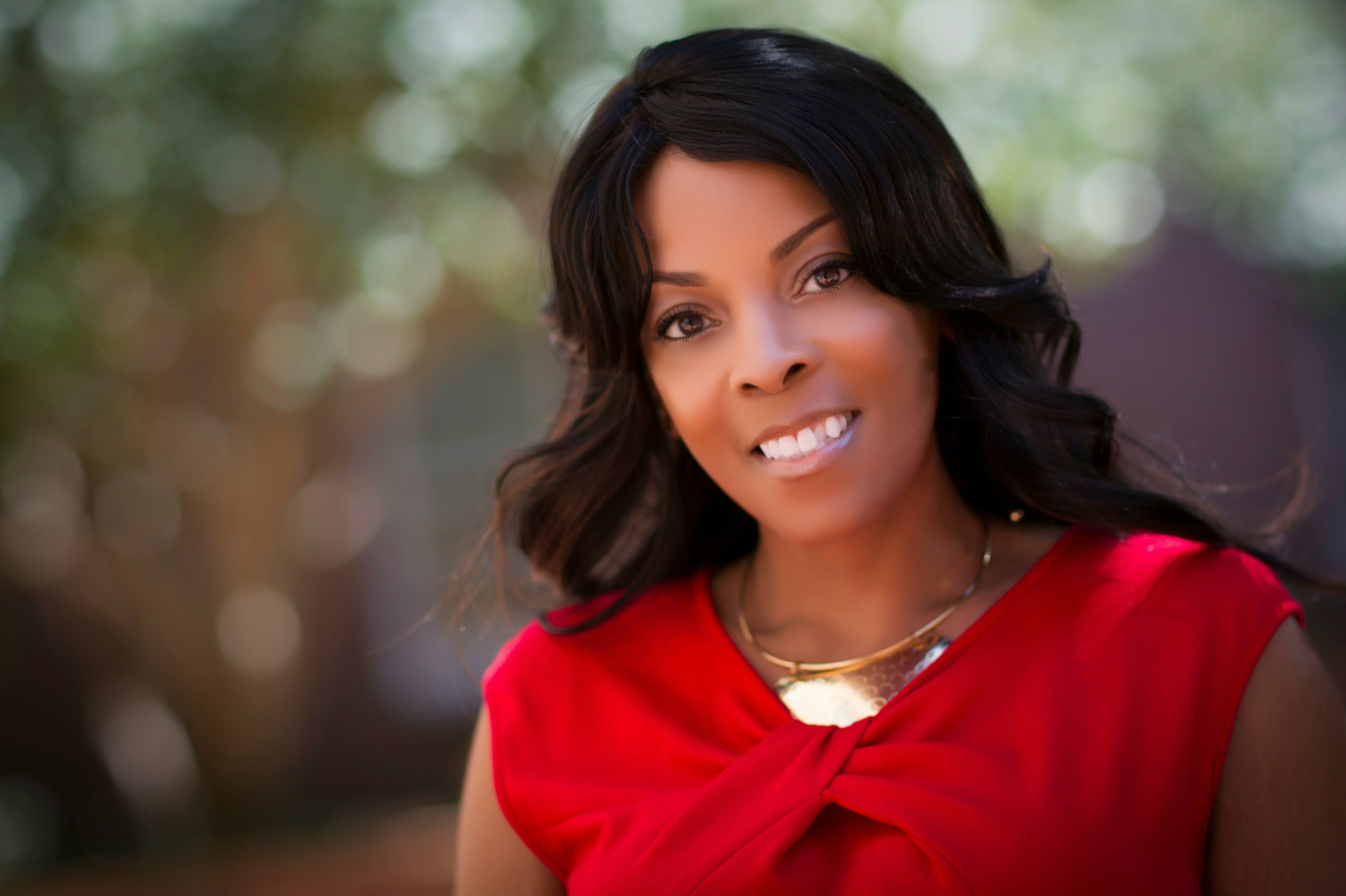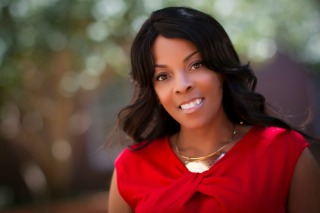This Minority Mental Health Awareness Month, I’m interviewing Wizdom Powell Hammond, Assistant Professor of Health Behavior, Gillings School of Global Public Health, University of North Carolina at Chapel Hill. I met Wizdom Powell years ago at a conference. We quickly realized that we had several friends in common, and we starting chatting about work in the academy and community. As I’ve dared to share more about my health experiences, I’ve reveled in watching Wizdom’s star rise in her important and diligent work in public health. I’m happy to share her views here.
Monica: Your specialty is in the area of black men’s health. How did you first become interested in this topic?
Wizdom: When I went to the University of Michigan for graduate school, I had a deep passion in examining how the rules, expectations and cultural values around what men and women should or shouldn’t do affect how individuals engage in health behaviors. I was first seeking to understand these associations in women. But, I had a very wise mentor, Dr. Jacqueline Mattis who asked me a critical question, “Have you ever thought about examining these associations in men?” I began reading all the studies and discovered glaring male health disparities. From that moment on, I have devoted my career to answering that critical question.
Was there a personal draw to this topic as well?
Yes, the premature passing of my grandfather from a preventable cancer. His early death left a void in my family that is still felt … intergenerationally. When he passed at age 51, we lost all connection to his/our family in Alabama. We lost a patriarch and all the potential life lessons he carried within him. So, I think at a very deep level, I do this work to prevent other families from experiencing the same kind of loss.
I know that you study various aspects of black men’s health, but I want to ask you primarily about black men’s mental health during Minority Mental Health Awareness Month. You recently won a significant grant from NIH to study environmental factors on black men’s health habits. Can you name two or three key factors in the development of black men’s mental health?
We are still learning a lot about factors that contribute to positive and negative mental health outcomes among Black males. The existing data and my own clinical experience show that stress exposure plays a critical role in Black mental health. Black men experience a disproportionate amount of race or racism-related stress. This kind of stress exacts a wear and tear on mental health. Some of my research has demonstrated that when Black men experience this kind of race-related stress and then stuff down the emotions associated with this exposure, they also report more depressive symptoms.
Social constructions of masculinity encourage emotional stoicism — i.e., stuffing or shutting down emotions. These ideas about masculinity also discourages help-seeking by reinforcing the notion that “real men or boys don’t cry.”
At one point in our history, Black men’s survival was hinged on keeping their worries to themselves. When they continue to internalize these beliefs, it can be particularly damaging.
And finally, I do believe that socioeconomic status and socioenvironmental contexts play a role. Where you live, work, and play, and how/whether you earn can impact mental health. Living in neighborhoods characterized by high violence, alcohol, and drug activity can disrupt biological processes associated with mental health. The issues are layered and complex.
There is a significant stigma about mental illness in African American communities. Some argue that it is especially strong among black men. Do you find this to be true? What one thing would you want all people to know about black men’s mental health?
Stigma associated with mental illness is an issue for most Americans. I do believe that African American communities struggle not with the acceptance of mental illness. We all can tell stories about the uncle or aunt in the backroom who everybody knew was ‘touched.’ So I don’t believe acceptance is the issue. The issue I believe is related to stigma around treatment. We fully endorse praying about mental health issues. But, we are less inclined to encourage one another to seek formal treatment. After all, “we survived slavery” so we are expected to weather all kinds of modern, quotidian stressors like supermen and superwomen. Now, if you couple this general expectation with masculinity norms that discourage help-seeking and proscribe silence about mental health treatment, then you can see how Black men might be especially vulnerable.
The one thing I want people to know about black men’s mental health is that anger expression is not always pathological. In fact, anger is a legitimate and normative response to social injustice. Anger might be the presenting mental health symptom but it is not usually the source of the wound. The wounds might be linked to self-conscious emotions like shame associated with persistent marginalization or subjugation, role conflicts, or other social identity loss. We, as a clinical community, have to speak to the wounds of Black men and not seek immediately to help them diffuse anger. That is often done to help us feel better and more comfortable in the therapeutic relationship. We have to learn to sit with Black men in their pain, listen empathically, and develop more strengths-based treatment approaches.
What one thing would you want black men to know about maintaining good mental health?
The one thing I would want Black men to know is that disclosing vulnerability, expressing emotion, and letting the tears flow are all normal responses to stress and distress. That getting or seeking help for mental health problems is a sign of strength, a show of courage, and the first step towards ensuring that they are around for the women, children, and communities that love them. We need you… stand in solidarity with…and support you in your efforts to heal.
Have you noticed that faith plays any role in black men’s mental health? If so, what?
Religion, spirituality, and faith play a central role in Black men’s lives. In fact, in some of the research we have conducted we have found that the use of religion to cope with stress helps buffer Black men from the mental health effects of race-related stressors. I would say that faith plays a very strong and potential protective role. But, we have to be sure that when we examine faith-related impacts on mental health that we look these associations from all sides. Faith systems can also inspire guilt or internal persecution that could also amplify mental health issues.
For the eggheads who want to know more, what one article or book would you recommend people to read about black men’s mental health?
One of the first books I read about Black male depression was Standing in the Shadows: Understanding and Overcoming Depression in Black Men by John Head.
Tell us about where we can read some of your work on this topic
I would recommend reading my article in the American Journal of Public Health, “Taking it like a Man: Masculine Role Norms as Moderators of the Racial Discrimination–Depressive Symptoms Association Among African American Men.”
More about Wizdom and her work here:





